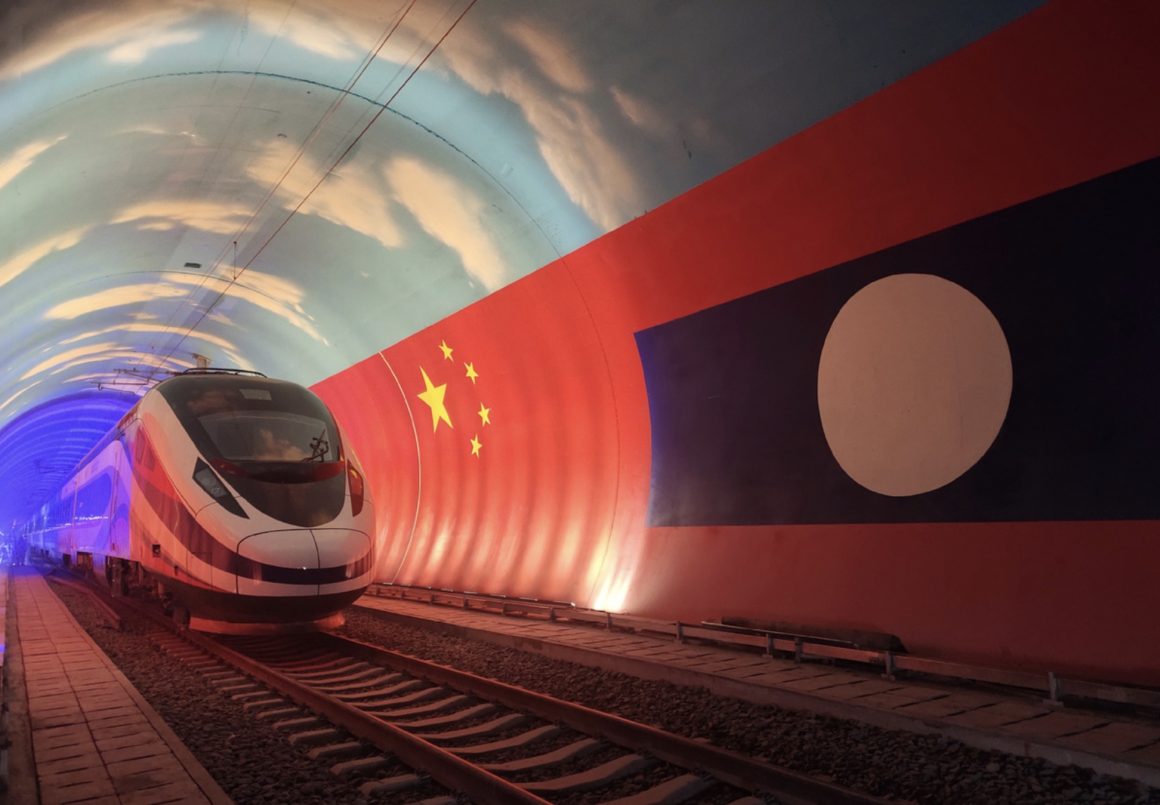The oppressors claim that oppression is an unavoidable aspect of human history. They say that today’s manifestations of capitalism, imperialism, and colonialism are immutable, as they represent a supposedly innate competitiveness within humanity’s nature. As Mao observed about the thinkers who view history in this rigid, fixed way:
They contend that a thing can only keep on repeating itself as the same kind of thing and cannot change into anything different. In their opinion, capitalist exploitation, capitalist competition, the individualist ideology of capitalist society, and so on, can all be found in ancient slave society, or even in primitive society, and will exist for ever unchanged. They ascribe the causes of social development to factors external to society, such as geography and climate. They search in an over-simplified way outside a thing for the causes of its development, and they deny the theory of materialist dialectics which holds that development arises from the contradictions inside a thing.
We see this type of sentiment in liberal anti-communism’s leading voices, like Orwell, who proclaimed several decades into the Russian revolution that “No advance in wealth, no softening of manners, no reform or revolution has ever brought human equality a millimeter nearer.” In the USSR’s first generation alone, we can see how the dynamic Mao pointed out was at play, and how it disproved this notion that societies can’t be fundamentally made more equitable. Because Russian feudalism, capitalism, and imperialism had created contradictions, its people rose up. They created a new system of government, one which carried out industrialization to the effect that feudalism was eliminated, collectivized industry to the effect that capitalism was supplanted and living standards rose, and made imperialism no longer economically necessary by letting the workers of the SSRs build the economy entirely through their own labor.
When it comes to the USSR, and to the modern socialist states which the USSR largely helped bring about, anti-communists point to the contradictions within these socialist projects as supposed proof of it being futile to struggle against oppression. Insofar as these contradictions are real—as anti-communists consistently exaggerate or fabricate contradictions when talking about socialist countries—they prove no such thing. I’m not making a tepid “no system is perfect” argument, I’m drawing upon what Mao said about contradictions: that as long as a government, person, or event serves to advance the progression of history, to bring systemic equality closer, whatever contradictions they have are not sufficient reason to devalue their achievements.
For an example of how this thinking on contradiction can work: those who seek to discredit Marxism-Leninism point to how China has billionaires. Yet this fact in itself does nothing for their case. This contradiction exists within a wider context, that being the existence of a proletarian democracy within China, the unprecedented poverty reductions China has carried out due to its having this democratic structure, the country now being a primary global leader on climate action, and the undoing of global neo-colonial inequities being brought about by China’s Belt and Road Initiative. Anti-communists and ultra-leftists claim the presence of billionaires in itself means China isn’t actually socialist, that China is imperialist, and so on. But they can say whatever they like. It doesn’t make the PRC’s accomplishments any less real, or change the fact that it’s a workers state. Their myths of Chinese “neo-colonialism” and “Uyghur genocide,” as well as their more long-established lies about north Korean tyranny, are all debunkable, and able to be unlearned when one recognizes how these countries have advanced civilization.
The other current socialist countries all share China’s accomplishment of creating a state structure that’s dictated by the will of the proletariat rather than the bourgeoisie, and they all are building upon this in their own ways. Cuba has become a world medical innovation leader and a pioneer in LGBT rights. Vietnam has managed to use controlled market integration to reduce poverty on a mass scale in the vein of China. The DPRK has progressed the furthest towards full communism by making taxes fully obsolete, and by establishing a generational trend towards decentralizing authority. Laos, along with the other Asian socialist republics, has been leading the region beyond the curse of car dependency by constructing a high-speed railway network.
The essential argument of the anti-communists, even if they concede that Chinese socialism isn’t replicating imperialism, is that communism will always lead to “oppression” in some form or another. That even if capitalism, with its economic demand for imperialist extraction, gets fully replaced by communism, then communism will merely bring about a different mode of subjugation. As Mao said, imperialism’s defenders claim that the equivalent of imperialism existed during prehistoric times—before any kind of imperialism could yet even emerge—and that imperialism or a new version of it will therefore be a given throughout all of human history. To make this case, they must engage in those exaggerations and misleadingly framed portrayals of existing socialism’s contradictions. The problems within these projects have to be seen as sufficient grounds for viewing them not merely as flaws, but as reactionary, as proof that capitalism, imperialism, and colonialism can’t be fought against without their exploitative dynamics reappearing in new manifestations.
In the case of Laos, much like for China, a major way in which anti-communists argue this is by claiming that capitalism can never be defeated due to the persistence of private business within these countries. This argument not only ignores the cases where socialist countries have successfully rendered private enterprise far less prevalent, like Stalin’s Soviet Union or the modern DPRK. It also relies upon that dishonest framing tactic of acting like the contradiction is the only thing present, while ignoring the factors of overall historical progress which surround the contradiction.
Laos, the anti-communist media is so eager to point out, has been experiencing a rise in inequality during recent decades, is undergoing austerity measures, and still has poverty. What they leave out is that like in China, the party, not the bourgeoisie or any capitalist state, continues to be entirely in control. It’s because of this dictatorship of the workers that Laos has been able to hold on to relative living standard advantages like generally low prices, has reduced poverty in the vein of China and Vietnam, has built a high-speed rail system that’s enabled people’s educational, medical, and food access, and has carried out highly effective pandemic measures which capitalist countries like the U.S. could never manage. Laos has demonstrated an equivalent aptitude when it comes to climate action, mobilizing to reduce emissions in a way that’s vastly beyond Washington’s capacities.
Another piece of context overlooked by those who hope Lao’s austerity will lead to mass discontent is that when the government does something, it’s mandated by the masses, at least far more so than under the effective dictatorship which is the United States. Due to the legacy of colonialism, and the for now inescapable impacts of capitalism’s global crises, Laos is vulnerable to collapse should it not navigate its situation carefully.
The government’s budget cuts, unwillingness to enforce USSR-style rent caps, and allowance of private enterprise aren’t above criticism, but they’re happening in the context of a struggling country which must build up its productive forces to have hope for reaching prosperity. As the free market fundamentalists themselves argue, social welfare isn’t how to alleviate poverty, the economy itself must be strengthened. Laos is merely following their advice, except without the bourgeois dictatorship that causes untethered markets to create disaster under capitalist states. There’s undeniably an improvement that’s been reached by Laos and the other socialist projects. By transferring state power to the proletariat, they’ve gained a fundamental advantage compared to the unmitigated neoliberal catastrophes which are today’s capitalist countries.
Should they admit this, the anti-communists will say that the need for Laos and other socialist republics to incorporate private enterprise has proven capitalism’s innate superiority over socialism in providing for human wellbeing and societal functionality. But these republics haven’t carried out their market reforms due to capitalism being the best possible system; they’ve done so due to it being a necessity under the current conditions. When the conditions change, when imperialism has been fully defeated, when capital has weakened enough for a new wave of revolutions to sweep the globe and socialism to assume the new primary mode of governance, capitalism itself will wane, and then become obsolete as a productive mode. Its dominance over global markets will disappear, and no socialist countries will any longer have to incorporate it to build up their wealth. Anyone who believes these changes won’t happen hasn’t been paying attention to the weakening of U.S. hegemony, intensifying capitalist crises, and growth in global class struggle from recent decades.
When these shifts come, the socialist countries will all be able to progress to the socialist development level of the DPRK, which is itself continuing on the path towards full communism. Classes, and therefore the state, will ultimately be made extinct, and the dynamics of subjugation which the oppressors said were immutable will become a historical relic.
—————————————————————————
If you appreciate my work, I hope you become a one-time or regular donor to my Patreon account. Like most of us, I’m feeling the economic pinch during late-stage capitalism, and I need money to keep fighting for a new system that works for all of us. Go to my Patreon here.








